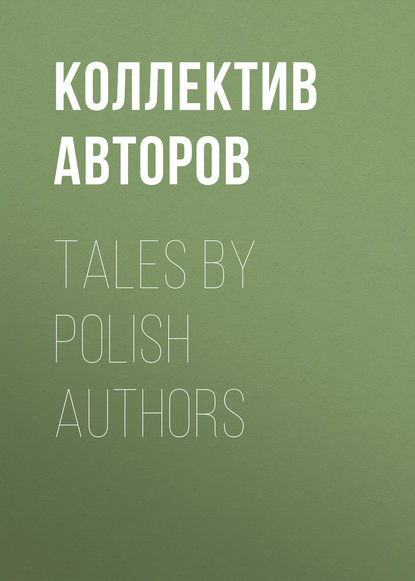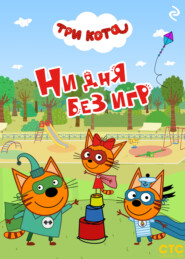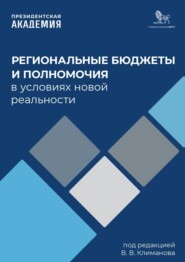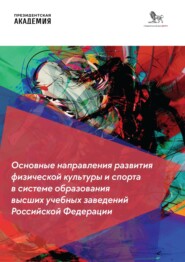По всем вопросам обращайтесь на: info@litportal.ru
(©) 2003-2024.
✖
Tales by Polish Authors
Настройки чтения
Размер шрифта
Высота строк
Поля
'Oh, my word!' groaned Bartek.
'Are you afraid?' Gwizdała asked.
'Why shouldn't I be afraid?'
The crimson in the sky was growing deeper still, so Gwizdała pointed towards it and went on whispering:
'Do you see that brightness? Do you know, Blockhead, what that is? That's blood. Here's Poland, – our frontier, say, – do you understand? But there in the distance, where it's so bright, that's France itself.'
'And shall we be there soon?'
'Why are you in such a hurry? They say that it's a terribly long way. But never fear, the French will come out to meet us.'
Bartek's Pognębin brain began to work laboriously. After some moments he asked: 'Wojtek.'
'Yes?'
'What sort of people are these Frenchmen?'
Here Wojtek's wisdom suddenly became aware of a pitfall into which it might be easier to tumble headforemost than to come out again. He knew that the French were the French. He had heard something about them from old people, who had related that they were always fighting with everyone; he knew at least that they were very strange people. But how could he explain this to Bartek to make him understand how strange they were? First of all, therefore, he repeated the question, 'What sort of people?'
'Why, yes.'
Now there were three nations known to Wojtek: living in the centre were the Poles; on the one side were the Russians, on the other the Germans. But there were various kinds of Germans. Preferring, therefore, to be clear rather than accurate, he said:
'What sort of people are the French? How can I tell you; they must be like the Germans, only worse.'
At which Bartek exclaimed: 'Oh, the low vermin!'
Up to that time he had had one feeling only with regard to the French, and that was a feeling of unspeakable fear. Henceforth this Prussian Reservist cherished the hatred of a true patriot towards them. But not feeling quite clear about it all, he asked again: 'Then Germans will be fighting Germans?'
Here Wojtek, like a second Socrates, chose to adopt a simile, and answered:
'But doesn't your dog, Łysek, fight with my Burek?'
Bartek opened his mouth and looked at his instructor for a moment: 'Ah! true.'
'And the Austrians are Germans,' explained Wojtek, 'and haven't they fought against us? Old Swierzcz said that when he was in that war Steinmetz used to shout: "On, boys, at the Germans!" Only that's not so easy with the French.'
'Good God!'
'The French have never been beaten in any war. When they attack you, don't be afraid, don't disgrace yourself. Each man is worth two or three of us, and they wear beards like Jews. There are some as dark as the devil. Now that you know what they are like, commend yourself to God!'
'Well, but then why do we run after them?' Bartek asked in desperation.
This philosophical remark was possibly not as stupid as it appeared to Wojtek, who, evidently influenced by official opinion, quickly had his answer ready.
'I would rather not have gone myself, but if we don't run after them, they will run after us. There's no help for it. You have read what the papers say. It's against us peasants that they bear the chief grudge. People say that they have their eyes on Poland, because they want to smuggle vodka out of the country, and the Government won't allow it, and that's why there's war. Now do you understand?'
'I cannot understand,' Bartek said resignedly.
'They are also as greedy for our women as a dog for a bone,' Wojtek continued.
'But surely they would respect Magda, for example?'
'They don't even respect age!'
'Oh!' cried Bartek in a voice implying, 'If that is so then I will fight!'
In fact this seemed to him really too much. Let them continue to smuggle vodka out of Poland, – but let them dare to touch Magda! Our friend Bartek now began to regard the whole war from the standpoint of his own interests, and took courage in the thought of how many soldiers and cannon were going out in defence of Magda, who was in danger of being outraged by the French. He arrived at the conviction that there was nothing for it but to go out against them.
Meanwhile the brightness had faded from the sky, and it had grown dark. The carriages began to rock violently on the uneven rails, and the helmets and bayonets shook from right to left to the rhythm of the rocking. Hour after hour passed by. Millions of sparks flew from the engine and crossed one another in the darkness, serpentining in long golden lines. For a while Bartek could not sleep. Like those sparks in the wind, thoughts leapt into his mind about Magda, about Pognębin, the French and the Germans. He felt that though he would have liked to have lain down on the bench on which he was sitting, he could not do so. He fell asleep, it is true, but it was a heavy, unrefreshing sleep, and he was at once pursued by dreams. He saw his dog, Łysek, fighting with Wojtek's Burek, till all their hair was torn off. He was running for a stick to stop them, when suddenly he saw something else: sitting with his arm round Magda was a dark Frenchman, as dark as the earth; but Magda was smiling contentedly. Some Frenchmen jeered at Bartek, and pointed their fingers at him. In reality it was the engine screaming, but it seemed to him that the French were calling, 'Magda! Magda! Magda!' 'Hold your tongue, thieves,' Bartek shouted, 'leave my wife alone!' but they continued calling 'Magda! Magda! Magda!' Łysek and Burek started barking, and all Pognębin cried out, 'Don't let your wife go!' Was he bound, or what was the matter? No, he rushed forward, tore at the cord and broke it, seized the Frenchman by the head, – and suddenly – !
Suddenly he was seized with severe pain, as from a heavy blow. Bartek awoke and dragged his feet to the ground. The whole carriage awoke, and everyone asked, 'What has happened?' In his sleep the unfortunate Bartek had seized the Sergeant by the head. He stood up immediately, as straight as a fiddle-string, two fingers at his forehead; but the Sergeant waved his hand, and shouted like mad:
'Ach, Sie! beast of a Pole! I'll knock all the teeth out of your head, – blockhead!'
The Sergeant shouted until he was hoarse with rage, and Bartek stood saluting all the while. Some of the soldiers bit their lips in order not to laugh, but they were half afraid, too. A parting shot burst forth from the Sergeant's lips:
'You Polish Ox! Ox from Podolia!'
Ultimately everything became quiet again. Bartek sat back in his old place. He was conscious of nothing but that his cheek was swollen, and, as if playing him a trick, the engine kept repeating:
'Magda! Magda! Magda!'
He felt a heavy weight of sorrow upon him.
CHAPTER III
It was morning!
The fitful, pale light fell on faces sleepy and worn with a long restless night. The soldiers were sleeping in discomfort on the seats, some with their heads thrown forward, others with their noses in the air. The dawn was rising and flooding all the world with crimson light. The air was fresh and keen. The soldiers awoke. The morning rays were drawing away shadows and mist into some region unknown. Alas! and where was now Pognębin, where Great and Little Kzrywda, where Mizerów? Everything was strange and different. The summits of the hills were overgrown with trees; in the valleys were houses hidden under red roofs, with dark crucifixes on the white walls, – beautiful houses like mansions, covered with vines. Here, churches with spires, there, factory chimneys with wreaths of purple smoke. There were only straight lines, level banks, and fields of corn. The inhabitants swarmed like ants. They passed villages and towns, and the train went through a number of unimportant stations without stopping. Something must have happened, for there were crowds to be seen everywhere. When the sun slowly began to appear from behind the hills, one or two of the soldiers commenced saying a prayer aloud. Others followed their example, and the first rays of splendour fell on the men's earnest, devout faces.
Meanwhile the train had stopped at a larger station. A crowd of people immediately surrounded it: news had come from the seat of war. Victory! Victory! Telegrams had been arriving for several hours. Everyone had anticipated defeat, so when roused by the unexpected news, their joy knew no bounds. People rushed half-clad from their houses and their beds, and ran to the post-office. Flags were waving from the roofs, and handkerchiefs from everyone's hands. Beer, tobacco and cigars were carried to the carriages. The enthusiasm was unspeakable; everyone's face was beaming. 'Die Wacht am Rhein' filled the air continuously like a tempest. Not a few were weeping, others embraced one another. The enthusiasm animating the crowd imparted itself to the gallant soldiers, their courage rose, and they too began to sing. The carriages trembled with their strong voices, and the crowd listened in wonder to their unintelligible songs. The men from Pognębin sang:
'Bartoszu! Bartoszu! never lose hope!'
'The Poles, the Poles!' repeated the crowd by way of explanation, and, gathering round the carriages, admired their soldierly bearing, and added to their joy by relating anecdotes of the remarkable courage of these Polish Regiments.
Bartek had unshaven cheeks, which, in addition to his yellow moustache, goggle-eyes, and large bony face, made him look terrifying. They gazed at him as at some wild beast. These, then, were the men who were to defend Germany! Such were they who had just disposed of the French! Bartek smiled with satisfaction, for he too was pleased that they had beaten the French. Now they would not go to Pognębin, they would not make off with Magda, nor capture his land. So he smiled, but as his cheek hurt him badly, he made a grimace at the same time, and did certainly look terrifying. Then, displaying the appetite of a Homeric warrior, he caused pea-sausages and pints of beer to disappear into his mouth as into a vacuum. People in the crowd gave him cigars and pence, and they all drank to one another.
'There's some good in this German nation,' he said to Wojtek, adding after a moment, 'and you know they have beaten the French!'
But Wojtek, the sceptic, cast a shadow on his joy. Wojtek had forebodings, like Cassandra:
'The French always allow themselves to be beaten at first, in order to take you in, and then they set to until they have cut you to pieces!'
Wojtek did not know that the greater part of Europe shared his opinion, in general, and in particular now.

















